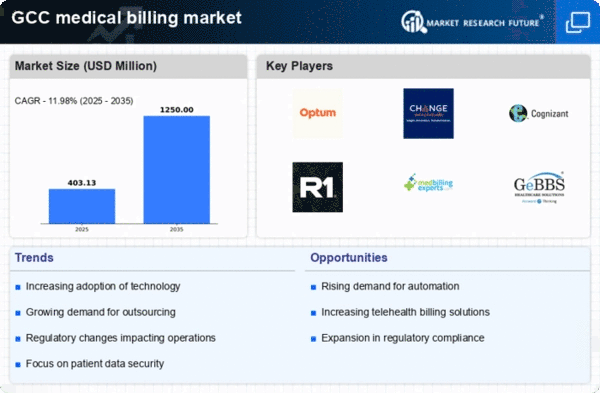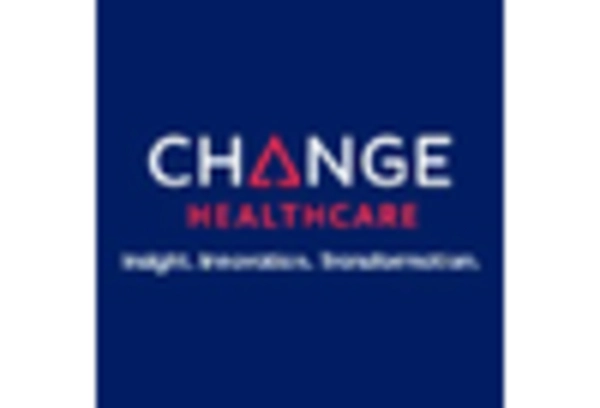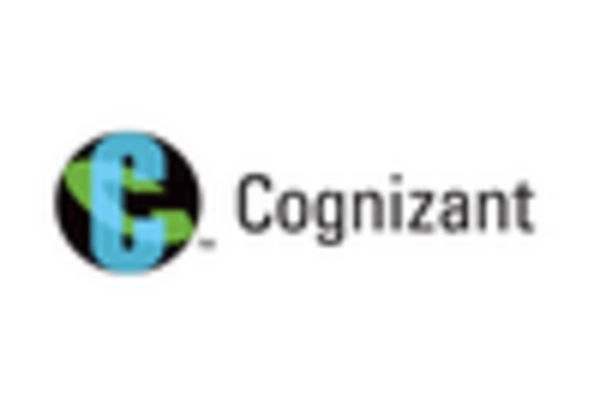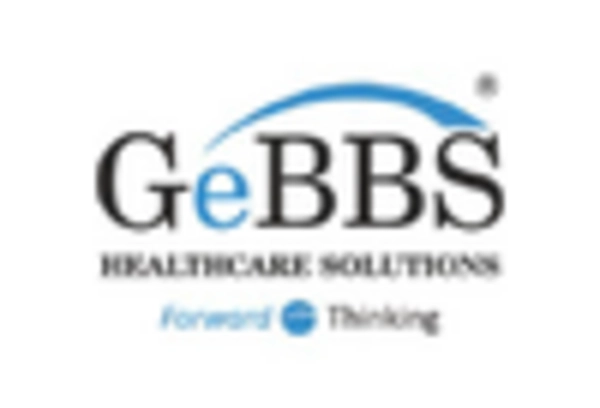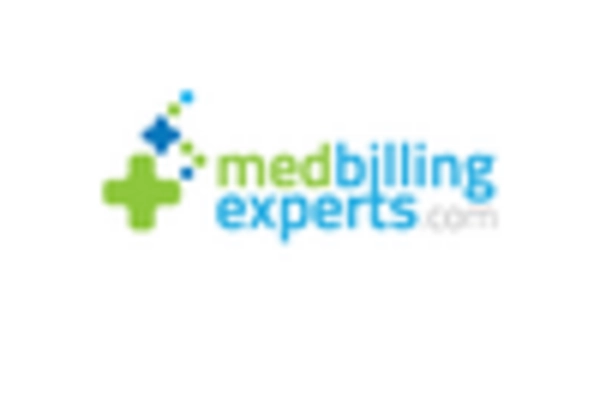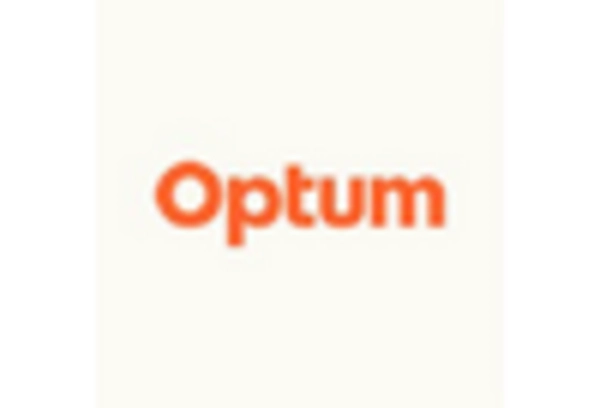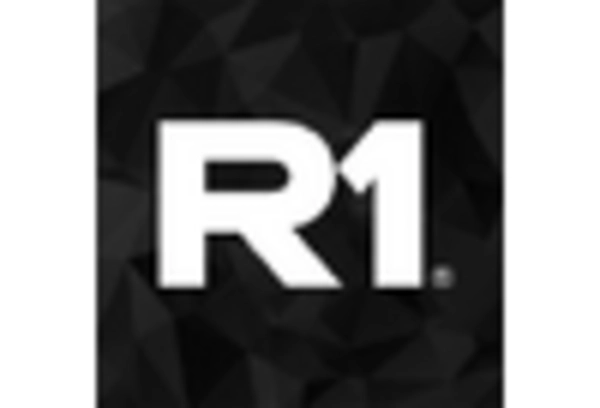Increased Patient Volume
The medical billing market is significantly influenced by the rising patient volume across the GCC. With a growing population and an increase in health awareness, more individuals are seeking medical services. This trend is expected to lead to a higher number of claims processed, thereby increasing the demand for efficient medical billing solutions. In 2025, the GCC healthcare sector is anticipated to handle over 200 million patient visits, which will require robust billing systems to manage the influx. As healthcare providers strive to maintain high standards of service amidst this surge, the medical billing market is likely to benefit from the need for streamlined billing processes that can handle increased workloads effectively.
Rising Healthcare Expenditure
The medical billing market is experiencing growth due to the increasing healthcare expenditure in the GCC region. Governments and private entities are investing heavily in healthcare infrastructure, which is projected to reach $100 billion by 2025. This surge in spending is likely to enhance the demand for efficient billing systems, as healthcare providers seek to streamline operations and improve revenue cycles. As a result, the medical billing market is expected to expand, driven by the need for accurate billing and reimbursement processes. Furthermore, the rising prevalence of chronic diseases necessitates more complex billing procedures, further propelling the market. The focus on quality healthcare services is also pushing providers to adopt advanced billing solutions, thereby fostering growth in the medical billing market.
Shift Towards Value-Based Care
The medical billing market is undergoing transformation due to the shift towards value-based care in the GCC. This model emphasizes patient outcomes and quality of care rather than the volume of services provided. As healthcare providers transition to this model, there is a growing need for billing systems that can accurately reflect the value of care delivered. This shift is expected to drive the medical billing market as providers seek solutions that can support value-based reimbursement models. By 2025, it is projected that value-based care will account for over 40% of total healthcare spending in the region. Consequently, the medical billing market is likely to evolve to accommodate these new reimbursement structures, ensuring that providers are compensated fairly for the quality of care they deliver.
Regulatory Compliance Requirements
The medical billing market is significantly impacted by evolving regulatory compliance requirements in the GCC. Governments are implementing stricter regulations to ensure transparency and accountability in healthcare billing practices. Compliance with these regulations is essential for healthcare providers to avoid penalties and maintain their licenses. As a result, there is a growing demand for medical billing solutions that can adapt to these changing regulations. In 2025, it is estimated that compliance-related costs will account for approximately 15% of total healthcare expenditures in the region. This trend indicates that the medical billing market will likely see increased investment in compliance-focused billing solutions, as providers strive to meet regulatory standards while optimizing their revenue cycles.
Technological Advancements in Billing Solutions
The medical billing market is being propelled by rapid technological advancements in billing solutions. Innovations such as artificial intelligence (AI) and machine learning are transforming how billing processes are managed. These technologies enable healthcare providers to automate billing tasks, reduce errors, and enhance efficiency. In the GCC, the adoption of such technologies is expected to grow by 30% over the next few years, as providers seek to optimize their operations. The integration of advanced analytics also allows for better revenue cycle management, which is crucial in a competitive healthcare landscape. Consequently, the medical billing market is likely to expand as providers increasingly turn to technology-driven solutions to improve their billing processes.


